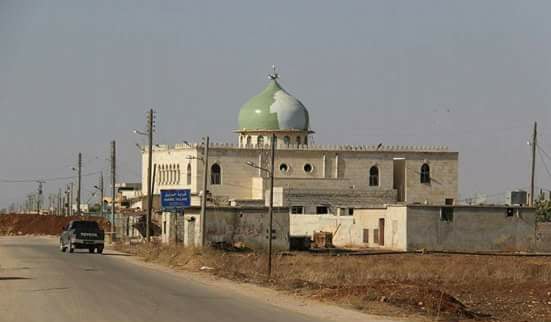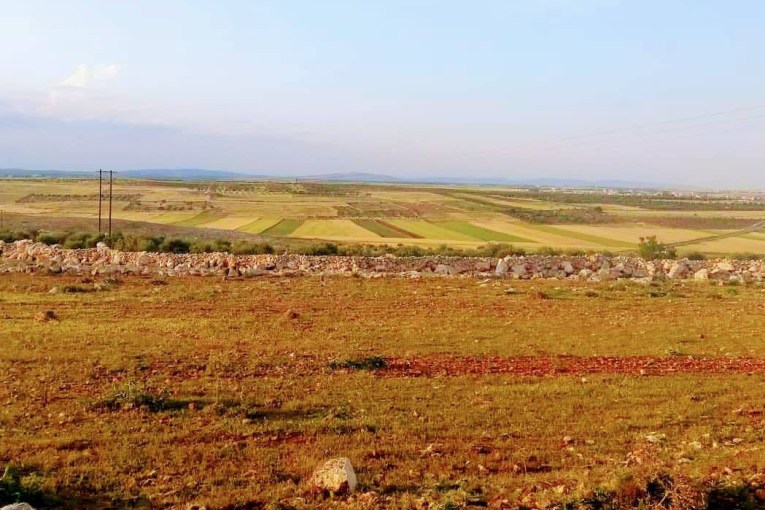
Afrinpost
On the fourteenth of this month, the Human Rights Council issued the report of the independent international investigation committee on Syria, which includes monitoring field developments during the first half of 2020.
The 25-page report titled “No Clean Hands – Behind the Frontlines and the Headlines, Civilians continue to be subjected to horrific violations and increasingly targeted by armed actors.”
The report begins with an assessment of the overall response to the field conditions in all Syrian regions, and it began with reference to a relative decline in the fighting, due to the measures of the Corona virus, and the monitoring of what he called a relative calm in Idlib, indicating the continuation of clashes in northern Syria while the bombings occurred in the areas of Ras al-Ain and Afrin Against the deteriorating security situation in Deir Ezzor. The report refers to ISIS activity in Al-Sukhnah area in Homs governorate, unrest in Al-Suwayda governorate, and an increase in the economic crisis, the wave of high prices and food insecurity.
The report mentioned the deterioration of the security situation in the southern governorates, the occurrence of clashes, reprisals, indiscriminate bombing, and increased killings, and the Syrian army storming villages in Suwayda governorate. The committee still considers the so-called Islamic State (ISIS), Hayat Tahrir al-Sham, Hurras al-Din, and other terrorist groups.
Under the heading of violations committed outside the context of the conduct of hostilities, the report mentioned acts of detention, enforced disappearance, torture, sexual violence, and deaths in detention, and the cases of enforced disappearance in regime-controlled areas reached 34 men, one woman, and 10 children. Thirteen cases of torture and 19 deaths in custody were documented, while restrictions on public life and disposition of property continued in the areas controlled by the regime. He concludes that the Syrian government, pursuant to the state’s ongoing policy, continues to commit crimes against humanity, including enforced disappearance, murder, torture, sexual violence, and imprisonment, and that they may in some cases constitute war crimes.
Afrin and Ras al-Ain regions:
Civilians residing in these areas witnessed a “wave of violations committed by members of the Syrian National Army, shelling and vehicle-borne explosive devices”.
The report states that the city of Afrin was bombed, car bombs were detonated, dozens were wounded, and the infrastructure was damaged. It cites examples of bombings. In conclusion, it is considered that the attacks that targeted the city of Afrin or occurred within it “were carried out by factions or fighters from armed groups, not by members of government forces.”
Concerning the violations committed outside the context of the hostilities, the report says, the Commission has demonstrated the repeated and systematic patterns of looting and appropriation of property as well as the arbitrary deprivation of liberty committed by the various brigades of the Syrian National Army in the Afrin and Ras al-Ain regions. In the end, they forced the residents, most of whom were of Kurdish origin, to leave their homes … ”
Concerning the looting and appropriation of property, Paragraph (47) states, “In all parts of Afrin, several accounts indicate that the members of the Syrian National Army deliberately looted Kurdish property.” He mentioned what Suleiman Shah’s militia gunmen did, as they passed the houses and ordered the Kurdish families that It includes less than three individuals to vacate their homes to accommodate people coming from outside Afrin, as well as pay a “tax” on agricultural crops or a certain rent amount as a precondition for staying in the homes they own. The report states in paragraph (48) that a militia allegedly requested the bonds of millions from the Kurdish population, and said to a citizen who does not possess title deeds, “If it were up to me, I would have killed every Kurd from one to 80 years old.”
The report states in paragraph (49) that, similar to what is happening in Afrin, the National Army forces seized Kurdish civilian property, after the so-called “Peace Spring” battles, and the “Hamza Militia” carried out systematic and widespread looting and seizure of property, including writing the names of some Brigades on the walls of homes, civilians reported to the committee their fear of staying and their inability to return to their homes that had been looted and occupied by the brigades or their families in the immediate aftermath of the hostilities.”
The report states in paragraph (50) that the property of the looted homes was transferred and sold in a coordinated manner, which may indicate a deliberate policy implemented by several brigades, and in paragraph (51) it mentioned an example of the Hamza Brigade converting a Kurdish family’s home into an institute of Qur’anic studies and inaugurating it in the presence of the governor of Sanliurfa.
Regarding the unlawful deprivation of liberty, torture and ill-treatment: Paragraph (52) states that what he called “National Army officers,” referring to militia leaders, responded to the complaining residents with threats, extortion or detention, while others were kidnapped and paid a ransom for their release. The Committee is concerned about the frequent “hostage taking”.
In paragraph (53), the report indicates that civilians in Afrin and Ras al-Ain were detained because of their links with the Autonomous Administration, and they are interrogated with the help of interpreters, and the report states that civilians were detained in Afrin Central Prison or an underground unit at the Military Police headquarters. Paragraph (54) indicated that civilians of Kurdish origins were mainly beaten, tortured, deprived of food and water, and tortured by hanging from the ceiling and beaten repeatedly.
In paragraphs (55-56), the report stated that 11 women were detained by Hamza militia, including a Yazidi woman and “3” Kurds and a baby, and that the female Yezidi detainees were called to convert to Islam during the interrogation .. and that 49 Kurdish and Yazidi women were detained in Ras al-Ain and Afrin.
In paragraph (59), the report referred to women in Afrin and Ras al-Ain who faced intimidation and confined homes, and detained women were subjected to rape and sexual violence.
Paragraph 57 states that Syrian citizens, including women who were detained, were transferred by Turkish forces to Turkey, and were charged under the Turkish criminal law with charges of committing crimes in Ras al-Ain, including murder or belonging to a terrorist organization.
Paragraph (60) documenting cases of sexual violence against men and women detained in Afrin, including the mass rape of a minor.
Paragraph (62) referring to receiving reports of the kidnapping of Kurdish women in Afrin and Ras al-Ain and forcing them to marry, attributed to Sultan Murad’s militia.
Paragraph (63) looting and demolishing religious and archaeological sites, and in Paragraph (74) plundering Yazidi mausoleums and cemeteries
Conclusion
(65) The committee has reasonable grounds to believe that the fighters of the Syrian National Army, in particular the 142nd Brigade (Suleiman Shah Brigade), the 22nd Division (Hamza), and the 24th Division had repeatedly committed the war crime of looting in the Afrin regions.
(66) “The Committee has reasonable grounds to believe that members of the Syrian National Army have committed the war crimes of taking hostages, cruel treatment, torture and rape that amount to torture,” and also “looting and demolishing cultural property …
(67) The Committee notes that Turkey, in the areas under its control, bears the responsibility as far as possible to ensure public order, public safety and protection for women and children, and remains bound by the necessary treaty obligations in the field of human rights.
(68) The Committee notes allegations that Turkish forces are aware of incidents of looting and appropriation of civilian property and are present in detention facilities. By refraining from intervening, the Turkish forces may have violated Turkey’s stated obligations.
(69) The committee considered that the transfer of Syrians detained by the “Syrian National Army” to Turkish territory may constitute a war crime represented by the illegal deportation of protected persons.
Conclusion
It concluded with recommendations, foremost of which are the pursuit of a long-term national ceasefire, in accordance with Security Council resolution 2254 (2015). The immediate and widespread release of prisoners from all facilities is essential to save lives. It referred to conditions of detention and the risk of contracting the COVID-19 virus. The committee also urged the government to take urgent and comprehensive steps to uncover the fate of the detained or disappeared.
The commission’s report is scheduled to be presented on September 22 during an interactive dialogue at the Human Rights Council.
The Independent International Commission of Inquiry on Syria is composed of the Brazilian Paulo Sergio Pinheiro (Chair), the American Karen Koning Abu Zayd, and the Egyptian Hani Majali, and it has been mandated by the United Nations Human Rights Council to initiate the investigation and document all violations of international law in Syria since March 2011. .






